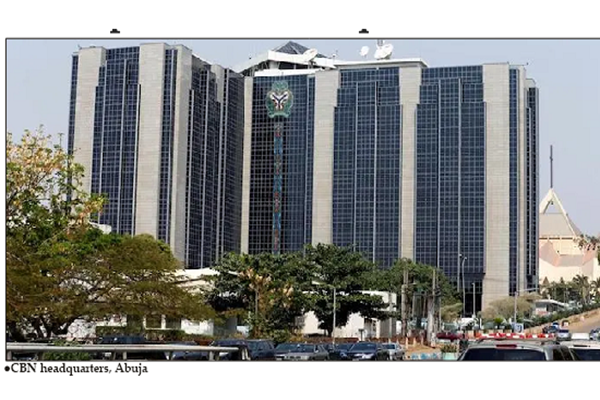CBN Targets $1bn Monthly Diaspora Remittances with Launch of NRBVN Platform
By Patience Ikpeme
The Central Bank of Nigeria (CBN) has launched the Non-Resident Bank Verification Number (NRBVN) platform in collaboration with the Nigeria Inter-Bank Settlement System (NIBSS), aiming to boost formal remittance inflows to $1 billion monthly.
Unveiled in Abuja on Tuesday, the NRBVN platform is a secure digital gateway that allows Nigerians in the diaspora to obtain a Bank Verification Number remotely, eliminating the longstanding requirement for physical presence in Nigeria. This innovation marks a significant transformation in how Nigerians abroad interact with the country’s financial system.
CBN Governor Olayemi Cardoso described the launch as a major development in the nation’s journey toward financial inclusion and a pivotal mechanism for strengthening economic linkages with Nigerians abroad. According to him, the introduction of the NRBVN is expected to unlock enormous remittance potential and ease access to financial services for millions living outside the country.
“With the NRBVN in place, the CBN is optimistic about reaching its $1 billion monthly remittance target,” Cardoso said during the event. “For too long, many Nigerians abroad have faced difficulties accessing financial services at home due to physical verification requirements. The NRBVN changes that.”
He explained that the new system leverages secure digital verification processes and robust Know Your Customer (KYC) protocols, making it easier and more affordable for Nigerians across the world to connect with financial services in their home country.
While outlining the features and future potential of the NRBVN, the CBN Governor urged stakeholders—ranging from banks and fintechs to International Money Transfer Operators (IMTOs)—to integrate and collaborate actively in the rollout and continuous improvement of the platform.
“This is not the final destination, but the beginning of a broader journey,” Cardoso stated. “We are building a secure, efficient, and inclusive financial ecosystem for Nigerians globally. This platform is not just about financial access, it’s about national inclusion, innovation, and shared prosperity.”
The CBN’s renewed push to formalize and increase remittance flows follows the growth in officially recorded diaspora remittances from $3.3 billion in 2023 to $4.73 billion in 2024. The increase is attributed to several policy adjustments, including the implementation of the willing buyer, willing seller foreign exchange regime, which aligns the naira exchange rate more closely with market realities.
Deputy Governor of the CBN’s Economic Policy Directorate, Mohammed Sani Abdullahi, said the NRBVN is designed to enhance the banking experience of Nigerians abroad by removing the logistical and regulatory challenges they previously faced.
“By providing secure, remote access to financial services, this platform simplifies the process of maintaining robust banking relationships, facilitating meaningful investments in Nigeria, and supporting the seamless flow of remittances,” Abdullahi said. “We believe this initiative will strengthen economic ties and foster a sense of pride and belonging among Nigerians worldwide.”
The launch event also featured a technical presentation by Mr. Premier Oiwoh, Managing Director and Chief Executive Officer of NIBSS. He pointed out that the NRBVN will help eliminate reliance on informal and potentially unsafe remittance channels that are still common in some diaspora communities.
“In some parts of London, people still use roadside kiosks to send money to Nigeria,” Oiwoh said. “With this platform, that era is over. From your living room, you can send money directly to your Nigerian account—faster, more securely, and at a lower cost.”
He disclosed that 27 Nigerian banks have already integrated with the NRBVN portal, allowing users to open domiciliary accounts remotely and manage their finances seamlessly from abroad. These accounts enable diaspora Nigerians to save, transfer funds, and access other banking services without the need for in-person visits.
Oiwoh further noted that the NRBVN platform is positioned to significantly reduce the cost of sending money to Sub-Saharan Africa—currently among the most expensive remittance corridors globally. According to him, convenience and user trust are essential components of the platform’s design.
“We believe this system will build confidence among users and increase formal remittance volumes. Our goal is to bring more Nigerians into the fold and make remittances cheaper and more transparent,” he said.
The NRBVN initiative is one part of a broader framework being developed by the CBN and its partners to strengthen diaspora engagement. It complements the Non-Resident Ordinary Account (NROA) and Non-Resident Nigerian Investment Account (NRNIA), both of which give Nigerians abroad access to a suite of financial products and services, including savings accounts, insurance, mortgages, pensions, and investment instruments within Nigeria’s capital markets.
Under prevailing financial regulations, diaspora Nigerians will also retain the flexibility to repatriate the proceeds of their investments, making the platform more attractive to those seeking safe and legal avenues for financial participation in Nigeria’s economy.
In terms of regulatory standards, the NRBVN has been built to align with international protocols, incorporating rigorous Anti-Money Laundering (AML) and KYC compliance measures. Each NRBVN application, processed through the NIBSS portal (https://nibss-plc.com.ng/nrbvn), undergoes multiple verification layers to guard against illicit financial activity.
By bolstering financial security and transparency, the CBN aims to enhance global confidence in Nigeria’s financial system while encouraging diaspora participation in national development.
With the official unveiling of the NRBVN platform, the CBN has taken another step toward unlocking the full potential of Nigeria’s estimated 17 million-strong diaspora community—a community that sends billions of dollars home each year and plays an increasingly vital role in the country’s socio-economic transformation.




